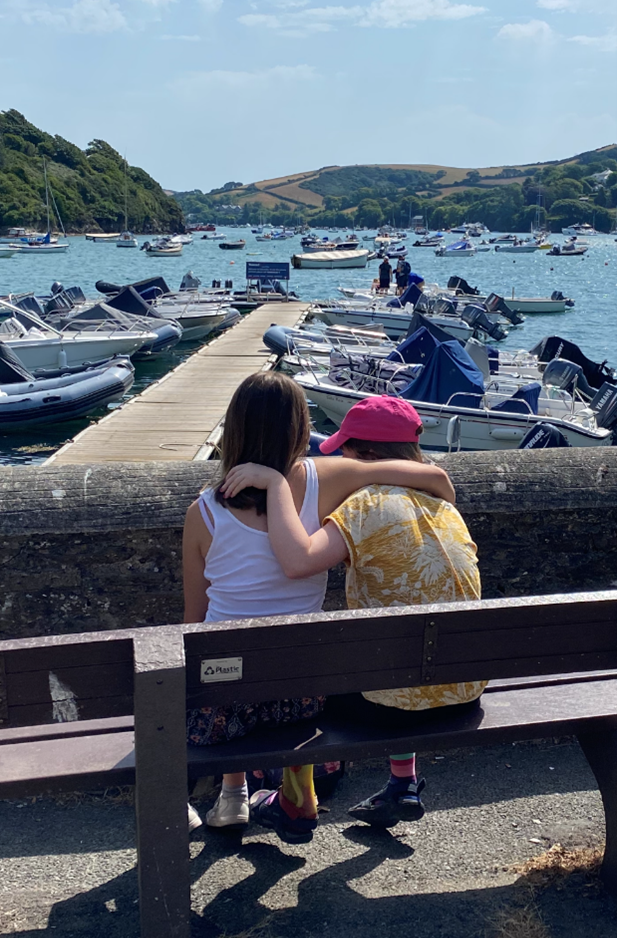A sibling relationship is one of the most unique familial relationships out there. It usually outlives any other kind of familial relationship, meaning the impact it can have in shaping an individual’s life can be huge. When you add disability to this, the relationship becomes even more formative, for both parties.
I grew up with my mum and younger sister, who has Hydrocephalus, a form of Cerebral Palsy, Epilepsy and severe sight loss. She attended the same local school as I did, with a full ECHP plan. As an older sister, it felt always natural to feel defensive and protective towards her; I saw her at her most vulnerable, anxious, and unwell. She has had over 10 operations in her life, including 8 on the brain. The sheer scale of bravery and courage she has had to show in every aspect of her life is something I can hardly even begin to comprehend. Her determination is something I learn from every day, even if that often meant she got the last chocolate in the box, got to use the bathroom first in the morning, and won most bickering matches.
We generally have a very strong relationship, so the process of applying and moving away to university was tough. I first began to seriously consider and research university during the 2020 lockdown, a time when access to my sister’s support network was virtually cut off overnight. Being classed in the more vulnerable category meant, even as restrictions lifted, we had to be careful about where we went and who we saw, something I found almost impossible and certainly very stressful when returning to school. This was also the period when both her physical and mental health declined quite noticeably, culminating in hospital stays, an Epilepsy diagnosis, and a sudden loss of sight.
During this period, and when I first moved to university, I felt as though I were two distinct people: one very excited about the chance to move somewhere new, study something that really interested me, and meet people from all over the world. The other: full of guilt, anxiety, and even shame that I was, in choosing to move away, placing a bigger pressure on my family by not being there.
I felt this inner conflict most strongly in first term. I had been out with friends one night, and brunch the next day, only to call home and find out my sister was in hospital. More generally, it felt wrong that, while I was having so many amazing experiences and meeting so many new people, the same challenges were still ongoing at home. Over time, these feelings lessened, as I became more adjusted to university life, and felt more settled in my new settings with new friends. Once I became closer with people, I found telling people about it very liberating; it meant I no longer felt like I had to justify leaving social situations to answer phone calls, or why I may not have the most conventional sibling relationship. It is forming these friendships, as well as learning about other people’s upbringings and challenges that they have had to overcome, that made me rethink things: instead of guilt, I tried to feel pride (that I had been accepted into my dream university) and gratitude (for the experiences I had had growing up, and the new experiences I was having at university). I was learning so much, but also able to share my experiences with others who may not have had any exposure to disability in their life, and the challenges it can bring. Over time, my perspective changed, and although feelings of guilt sometimes came back, having a strong support network meant I was able to validate these feelings without immediately judging myself as horrible and selfish.
Moving to university was the first time in my life that I felt my identity was truly my own, rather than being “my sister’s sister”. Growing up, I was often told I was “mature for my age” or a “mini adult”, and was often just known for my relation to my sister. Yet moving away to a new city where no one knew was a very strange one.
To any sibling who is in a similar situation, may that be for studies or work, I can attest to the value in speaking about your worries to someone outside the immediate family. Whether this is a trusted friend or professional, another fresh perspective on the situation can make you see things in a different light, and help you to realise that, while it will not always be plain sailing, your life is yours to live. Someone pointed out to me, that if I hadn’t have gone, would I have felt regret and even resentment in later life? Possibly. And how would this have affected my sibling relationship? As much of a cliché as it may be to say that people always regret the things they don’t do rather than the things they do, I think there is value in this.
I am now in my second year of a languages degree, and have a great support network of friends around me. Lots of them know about some of the additional challenges at home, and are amazing with my sister, who now says she comes to visit only so she can see them! I will always continue to be close to her, something I feel strongly about as we both move into adult life. Moving away to university, despite its challenges, was one of the best decisions I could have made for my own growth, and has shaped me into a better person. I made the choice to live my own life, and I hope no other sibling facing the same decision thinks of themselves as selfish for doing the same.

Find out more:
- UCAS – Students with caring responsibilities
- Carers Trust – Supporting higher education students with caring responsibilities
Related pages: